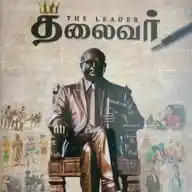
BABASAHEB
February 13, 2025 at 09:21 AM
Follow the BABASAHEB channel on WhatsApp: https://whatsapp.com/channel/0029Va5SfZsL7UVZfGON0F1n
*Was it in Tamil Nadu that women's property rights were first legally secured in India?*
*Many times, on various platforms, we hear speakers claiming that Tamil Nadu was the first in India to provide property rights to women.*
*Discussions about gender equality and women's rights continue to be widely talked about in Tamil Nadu. No doubt, Both before and after independence, action plans have been devised for these causes in Tamilnadu.*
*Dr. Babasaheb Ambedkar, who played a pivotal role in legally framing women's rights in India, not only advocated for women's rights but also made significant contributions in securing property rights for women.*
*Dr. Babasaheb Ambedkar, who was celebrated worldwide for drafting the Indian Constitution, made remarkable efforts to improve gender equality and women's rights, including property rights, and this must be acknowledged.*
*As the Law Minister of India, Dr. Babasaheb Ambedkar introduced the Hindu Code Bill in 1951. However, this bill, which included provisions for women's property rights, faced strong opposition from conservatives and could not be passed in Parliament.*
*The provisions in Dr. Babasaheb Ambedkar's Hindu Code Bill related to women's property rights were an important attempt to reform Hindu personal laws. He emphasized giving women more rights in inheritance and property matters. The primary objective of his Hindu Code Bill was to provide women with the same right to ancestral property as men, challenging the patriarchal structure of inheritance.*
*While Dr. Ambedkar’s thoughts and actions focused significantly on eradicating untouchability and establishing social justice, his contributions in laying the legal foundation for gender equality, including property rights, cannot be underestimated. His contributions have formed the basis for continued discussions and actions on gender and social justice in Indian Constitution, helping to establish the legal framework for women's rights.*
*In 1956, the Indian Parliament passed the Hindu Succession Act, 1956, which became the national law for inheritance rights. This law serves as the foundation for state laws. Before the enactment of this law, property rights in India were traditionally governed by patriarchal customs. This Act sought to simplify numerous such customs and laws and granted women full rights to property, equal to men. The Hindu Succession Act was amended again in 2005.*
*Based on the Hindu Succession Act of 1956, the following state laws regarding women's property rights were enacted:*
1. *The Joint Hindu Family System (Abolition) Act, 1975, Kerala.*
2. *The Hindu Succession (Andhra Pradesh Amendment) Act, 1986.*
3. *The Hindu Succession (Tamil Nadu Amendment) Act, 1989.*
4. *The Hindu Succession (Karnataka Amendment) Act, 1994.*
5. *The Hindu Succession (Maharashtra Amendment) Act, 1994.*
*The laws listed above were passed by various state governments. Kerala passed its law in 1975, Andhra Pradesh in 1986, and Tamil Nadu in 1989. All these were based on the Hindu Succession Act of 1956, which itself was based on the Hindu Code Bill of 1951 introduced by Dr. Babasaheb Ambedkar, and the Indian Constitution that came into effect on January 26, 1950.*
*Given these facts, we often hear claims like, "We were the ones who first brought the law for women's rights in Tamil Nadu," or "It was because of him (someone else) that we did this." But can women's property rights truly be secured through stories, essays, or poems? How many times did the writers of these poems or essays speak to the British rulers about women's rights? How many petitions did they submit? How many protests did they organize? How many conferences did they hold? How many resolutions did they pass? What discussions did they raise regarding women's rights in the process of shaping India's political structure of the time or in provincial assemblies? What debates did they initiate in the political decision-making bodies? What official legal advice did they offer? There are no answers to these questions from them. Yet, they speak as if they did everything themselves and guided all of India.*
*How many political parties supported Dr.Babasaheb Ambedkar’s Hindu Code Bill, which was brought to Parliament to secure women's rights? When conservatives opposed the bill inside and outside Parliament, who supported Dr. Ambedkar in this cause? The Hindu Code Bill, which contained crucial provisions for bringing revolutionary changes in women’s lives, could not be passed, and as a result, Dr. Babasaheb Ambedkar resigned from his position as the Cabinet Minister in protest, making a great sacrifice. Babasaheb Ambedkar's ideas are the foundation of the laws that have shaped women’s rights today!*
*Today's women’s rights, including property rights, social and economic security, and their progress, can be attributed to Dr. Babasaheb Ambedkar, and the current generation must recognize this truth.*
*Jai Bhim!*
-- *A K.Dhanakumar*
Dr.Ambedkar Intellectual society, Chennai
👍
❤️
🙏
4